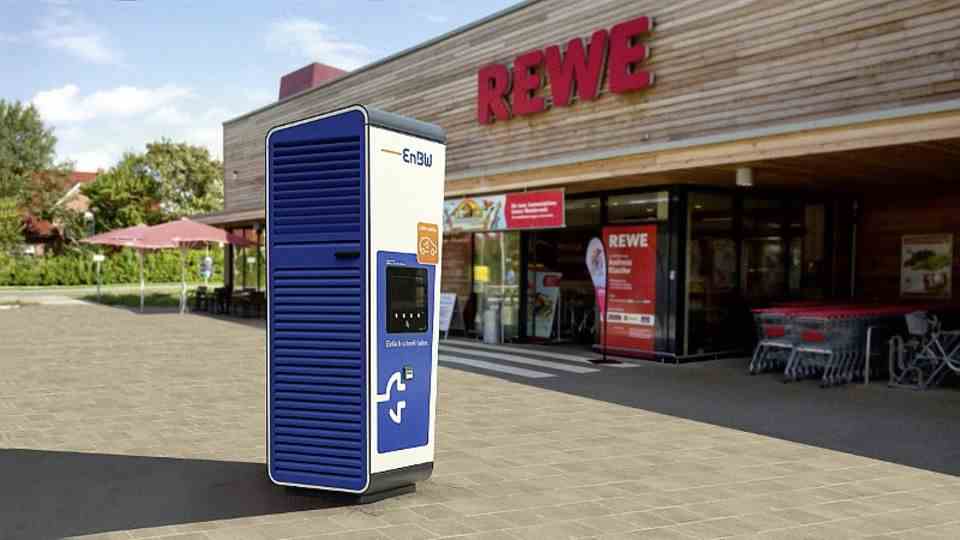Goodbye charging station
Kia launches free mobile charging service for electric cars
Mobile charging stations should save Kia drivers the hassle of charging
©Kia
For all electric car drivers who are worried about a dead battery or who don’t want to spend any more time charging, Kia now has the answer: a free mobile charging service that comes to the customer.
Kia electric car drivers no longer have to go to a charging station to charge their vehicle with electricity. Instead, they can call a mobile charging service. The offer is part of a pilot project in cooperation with the US company Currently.
The driver of an electrically powered Kia model can send a technician to any location up to three times a week to charge the electric car with electricity using a mobile charging system. The service works via an app in which the customer must create an account in advance.
Offer to “reduce range anxiety”
The offer is intended to “make owning an electric car more convenient and reduce range anxiety”. In addition, the companies advertise that customers save time, who subsequently no longer have to go to charging stations and may first have to wait there for a free charging station.
And the driver of the e-car does not necessarily have to be present during charging. He can also send an SMS to the technician so that he can open the car’s charging port and charge the car despite the driver’s absence. Greg Silvestri, Kia’s Vice President of Service Operations, announces: “The relationship with our customers does not end with delivery. In fact, this is just the beginning.”
The offer is currently available in Los Angeles, San Francisco and San Jose and is reduced to two months. Customers can still participate in the program until the end of April. Depending on how the pilot project goes, it will be expanded to other cities in the USA. The cooperation between Kia and Currently just started in March.
After the two-month service, customers can extend the offer for a fee. The price here is $25 per month plus delivery fees. These range from $5.99 to $9.99 depending on the subscription. Deliveries, however, are reduced to six per month – half of the two-month free offer. Charging takes place with up to 20 kW (DC charging capability) and supplies electricity for the equivalent of around 80 kilometers.
The mobile charging system comes from Spark Charge, the developer of the Roadie mobile charging system. It can be expanded by connecting several battery packs together.
Development of mobile charging stations is progressing
However, the mobile charging service for electric cars is not entirely new. The company eTree Mobility has small electric vehicles, equipped with energy storage devices, which supply electric cars with pure green electricity with a quick charging function. A range of 100 kilometers can be charged in eight minutes. Here, too, customers can order the mobile charging service from the Stuttgart-based company to any location using an app.
British start-up ZipCharge is currently developing a portable charging system the size of a trolley case. Depending on the version, it stores four to eight kilowatt hours and is sufficient for around 40 kilometers with an assumed power consumption of the car of 18 kWh per 100 kilometers. It is charged at the household socket. Consumers can remotely monitor and control the charging system using an app. The costs roughly correspond to those of a wall box. Alternatively, the system can also be rented as a subscription for just under 60 euros per month. Deliveries of the portable charging system are scheduled to begin in the fourth quarter of 2022.
At the end of 2020, VW presented a prototype of a mobile charging robot that drives an electric car fully autonomously in limited parking spaces such as underground garages and charges it with electricity using mobile energy storage devices. While the charging process is taking place, the charging robot connects other electric vehicles to energy storage devices and also supplies them with electricity. Once a vehicle has been charged, it picks up the battery and brings it back to the central charging station. The autonomous charging system is operated via app or car-to-x communication, which enables wireless communication between vehicles and the corresponding traffic infrastructure.
Swell: kiaeTree Mobility, VW, Insideevs


